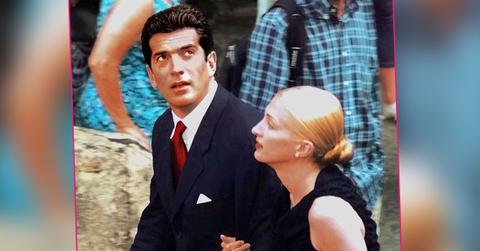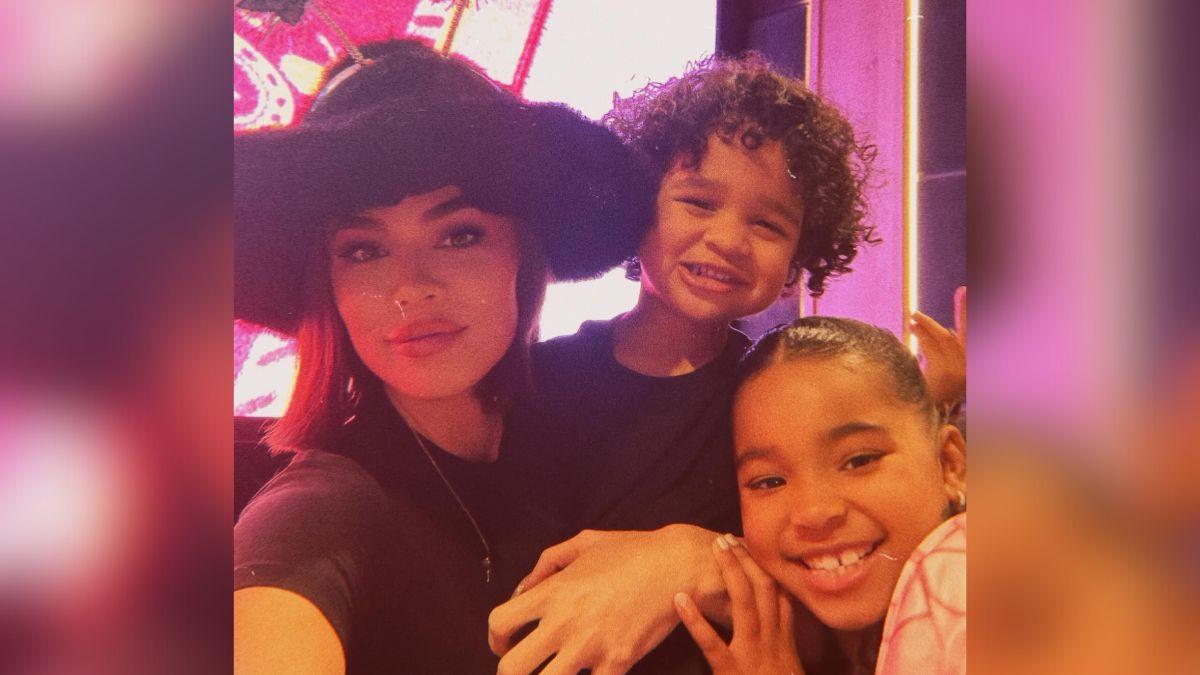JFK Jr. Could 'Lose His Temper' ... But Was He Capable of Writing a Death Threat to Joe Biden?

Feb. 22 2021, Updated 8:48 p.m. ET
There are still so many questions. Episode 5 of the “Fatal Voyage: The Death of JFK Jr.” podcast takes a closer look at John F. Kennedy Jr.'s temper — and how it might have landed him in an investigation involving a death threat sent to former senator and Vice President Joe Biden.
"John was a hot-headed kid," says Leon Wagner, a reporter who's known the Kennedy family for many years. "He acted on impulse frequently without thinking things through ... He was a kind of guy that had a very low capacity for liquor. All it took would be two to three drinks maybe, and he was liable to write a letter or make a phone call and just let his true feelings out, no matter how impolitic it may have been."
"We know he had a temper," fellow reporter Andy Tillett adds on the podcast. He notes that, although JFK Jr. was known as a charming guy, he also had a habit of lashing out — and that could get him in some real trouble. "He could also be impetuous, reckless, he’d lose his temper, say or do things he’d later regret," he claims.
In one particular case, podcast host and retired homicide detective Colin McLaren alleges JFK Jr. may have done something so reckless, the FBI was forced to get involved. In the episode, he and investigative reporter James Roberston look at old files from a case in which Biden received a threatening letter in 1994 — seemingly signed by JFK Jr. himself.
"Yeah, it says it was postmarked in Worcester, Massachusetts, to Joe Biden," McLaren explains as he and Robertson examine documents. "‘Dear Senator Biden, you are a traitor. You must die,'" reads the menacing note.
Tillett explains that such a letter may have been written in response to Biden's 1994 crime bill. "It was outwardly and supposedly an attempt to address the issue of rising violent crime in America at the time," he says. "A lot of people — especially those from the more liberal wing of the Democrat party — saw this bill as a step too far ... and maybe even racist."
"This was incredibly controversial," Robertson explains to McLaren. He notes that the bill resulted in a lot more people being incarcerated, with many being people of color. McLaren notes that JFK Jr. would likely have been "deeply concerned" by it.
"John considered himself a crusader in the tradition of his uncles Robert F. Kennedy and Edward "Ted" Kennedy particularly, for equal justice for minorities and the poor," Wagner claims. "He was outraged by the idea that the people who had the least ability to defend themselves would be most vulnerable thanks to Biden's bill."
But could he have gotten angry enough to send Biden a death threat over the controversial measure? "It's JFK Jr., they're suggesting in this file, is the author of that letter," McLaren says on the podcast. Robertson adds that the documents were given to the FBI laboratory in Washington D.C. and that Biden was clearly the intended "victim" of the note in question.
However, former FBI agent and certified fraud examiner Jim Ellis believes the letter wasn't written by JFK Jr. at all, despite his name being signed at the bottom. "The FBI investigates these types of things all the time and 99 percent are from cranks," he explains. "If somebody really means to do harm to a senator or congressman, they typically don't telegraph their intentions."
Another form of evidence Ellis reveals that seemed to clear JFK Jr. of authoring the letter was "indented writing" found on the paper. This refers to a message written on a page on top of the piece of paper that the note was written on, leaving invisible indented letters on the page. They seemed to read, "I am writing you. I had a heart attack. Missed one $55 insurance premium and they canceled me after 18 years. I got a cancellation notice and I'm 62 years old." If this is accurate, it would eliminate JFK Jr. as a suspect.
Ultimately, it appeared the case was dropped after a two-month investigation. "It says here ... 'the fingerprints were analyzed without effecting identification,'" McLaren explains. "They're saying that they don't know whose prints they are." He ponders whether the FBI would have ever dared ask JFK Jr. for his fingerprints.
"That's just never going to happen," Robertson refutes. "He's a Kennedy."
The two further discuss the fact that there was seemingly no outcome to the investigation. "We don't know why they're closing it. Who's been charged, who's been exonerated," McLaren says.

Wagner alleges the letter was, in fact, written by JFK Jr., but that Ted Kennedy kept it quiet by apologizing on behalf of his nephew and guaranteeing a personal apology from JFK Jr. to Biden. He says if anyone else had written it, the threat would have been considered a serious one by the FBI and likely have resulted in a felony charge.
"No FBI director would have the stomach to prosecute John Kennedy Jr.," he claims. "It would be wildly unpopular unless he had actually committed an act of violence against a senator. That's why it was dropped. It was strictly because of his name and his connections."
While Wagner believes JFK Jr. was capable of and responsible for the letter — and the fact that it appears to bear his signature does raise eyebrows — without an official outcome we can't be sure whether or not the late publisher's temper led him to threaten Biden in writing. Unfortunately, following JFK Jr.'s untimely death in 1999, we may never have all the answers.
“Fatal Voyage: John F. Kennedy Jr. Case Solved” promises to further explore JFK Jr.'s temperament before his tragic death in future episodes. To learn more, listeners can tune into the series every Wednesday.


